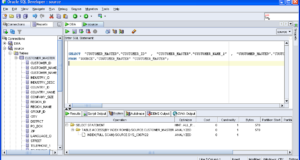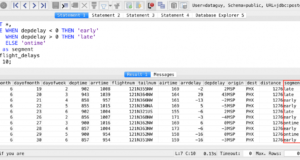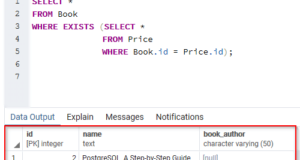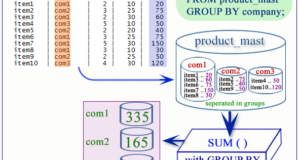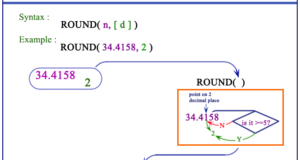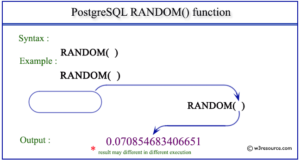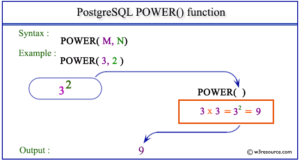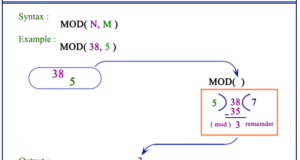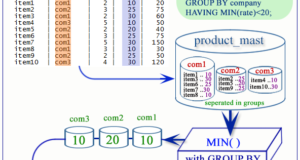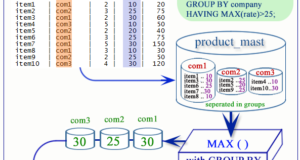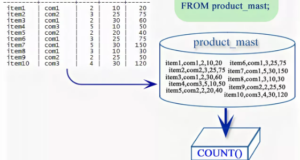SQL Server Blog
PostgreSQL WHERE statement is used to filter results from SELECT, INSERT, UPDATE, or DELETE statement. The syntax for WHERE statement in PostgreSQL WHERE conds; Statement parameters and...
PostgreSQL DISTINCT statement is used to remove duplicates from the result set. DISTINCT can be used only with SELECT operators. Syntax for DISTINCT statement in PostgreSQL SELECT DISTINCT |...
PostgreSQL SELECT LIMIT statement is used to extract records from one or more tables in PostgreSQL and limit the number of records to be returned based on the Limit limit. Syntax for SELECT...
PostgreSQL SELECT statement is used to extract records from one or more tables into PostgreSQL.In its simplest form, the syntax for the SELECT statement in PostgreSQLSELECT_id FROM...
PostgreSQL trunc function returns a number truncated to a certain number of decimal places. Syntax of the trunc function in PostgreSQL trunc( number, [ decimal_places ] ) ) Parameters and...
PostgreSQL sum function returns the cumulative value of the expression. Syntax of the sum function in PostgreSQL SELECT sum(aggregate_expression_id) FROM tabs [WHERE conds];Or the syntax...
PostgreSQL round function returns a number rounded to a certain number of decimal places. Syntax of the round function in PostgreSQL round( number, [ decimal_places_id ] ) ) Parameters and...
PostgreSQL random function can be used to return a random number or a random number within a range. Syntax of the random PostgreSQL function random( ) Parameters and function arguments...
PostgreSQL power function returns the value of m, which is elevated to the n-th degree. Syntax of the power function in PostgreSQL power( m, n ) Parameters and function argumentsm - Base...
PostgreSQL mod function returns the residue from n divided by m. Syntax of the mod function in PostgreSQL mod( n, m ) Parameters and function argumentsn - A numeric value, the rest of...
The min function in PostgreSQL returns the minimum value of the expression. Syntax of the min function in PostgreSQL SELECT min(aggregate_expression_id) FROM tabs [WHERE conds];Or the...
To help in managing transactions, Oracle DBMS allows you to use two special types of transactions - discrete transactions and standalone transactions. In this blog article, we will describe both...
Many PL/SQL developers believe that only database administrators and security specialists should take care of security. Indeed, some security aspects (e.g. user and privilege management) should...
Using machine resources (including memory and processor), Oracle can support tens of thousands of concurrent database users. The memory management technologies of Oracle in recent years have...
PostgreSQL MAX function returns the maximum value of the expression. Syntax of the max function in PostgreSQL SELECT max(aggregate_expression_id) FROM tabs [WHERE conds];Or the syntax of...
The PostgreSQL COUNT function returns the number of expressions. Syntax of the count function in PostgreSQL SELECT count(aggregate_expression_id) FROM tabs [WHERE conds];Or the syntax of...


